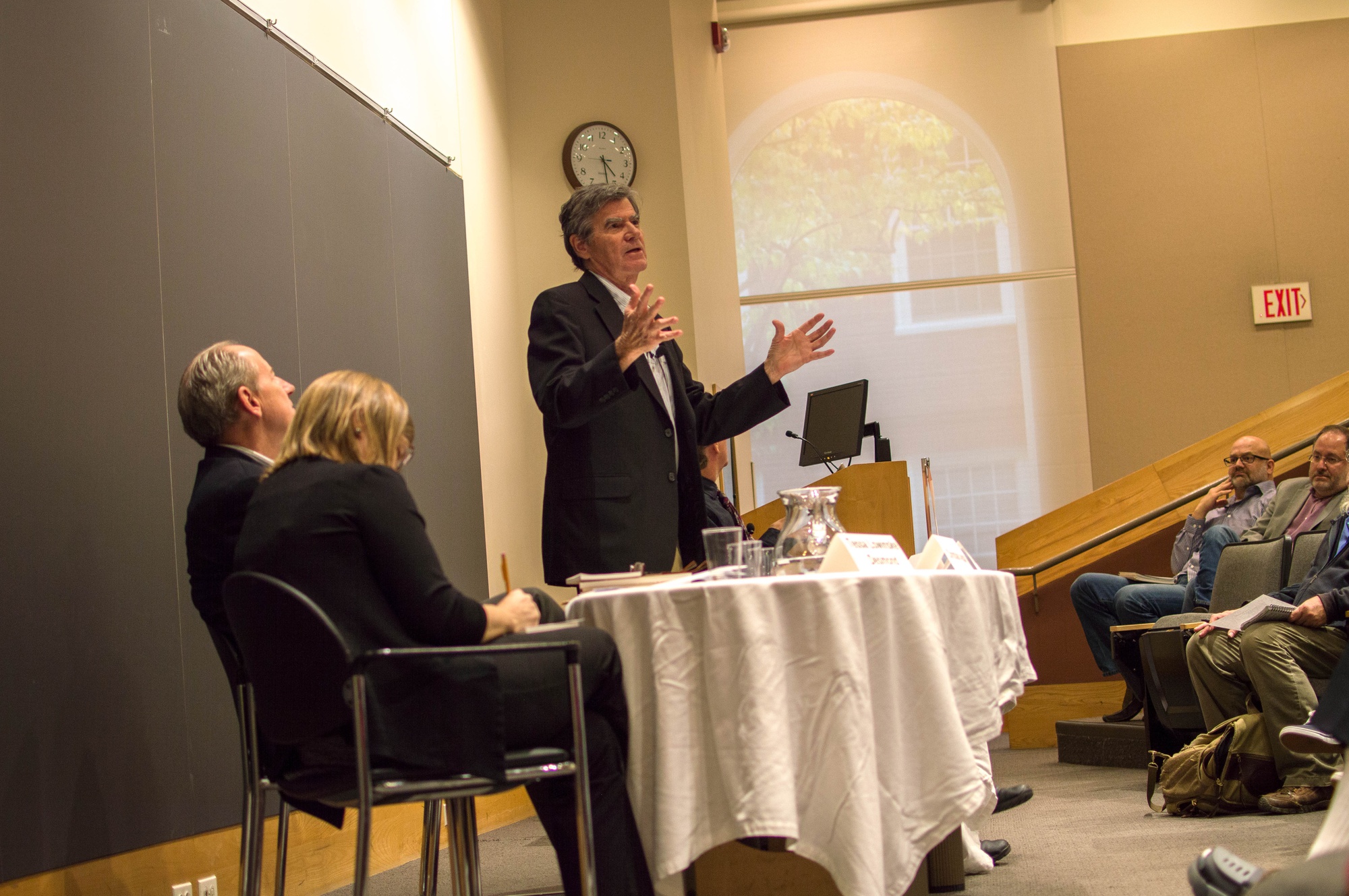
News
Summers Will Not Finish Semester of Teaching as Harvard Investigates Epstein Ties

News
Harvard College Students Report Favoring Divestment from Israel in HUA Survey

News
‘He Should Resign’: Harvard Undergrads Take Hard Line Against Summers Over Epstein Scandal

News
Harvard To Launch New Investigation Into Epstein’s Ties to Summers, Other University Affiliates

News
Harvard Students To Vote on Divestment From Israel in Inaugural HUA Election Survey
Authors Consider Music's Place in Vietnam War Narratives

UPDATED: October 27, 2015, at 10:41 p.m.
Doug Bradley and Craig Werner, co-authors of the forthcoming book We Gotta Get Out of the Place: Soundtrack of the Vietnam War, discussed the role of music in understanding the narratives of Vietnam War veterans on Thursday.
The event, titled “Myth, Memory, and the Music of the Vietnam War,” was co-sponsored by the Mahindra Humanities Center and the Committee on Ethnicity, Migration, and Rights.
“The 60s have become a myth more than a memory,” Werner said. “We are not making the claim to telling the truth in the simplest sense about Vietnam. This is a book about stories, and the music opened up stories about Vietnam.”

Werner proceeded to describe the 10-year process of interviewing hundreds of veterans and compiling their stories. The stories built around the songs that each veteran recalled most vividly from his or her service.
“If there’s anything that sets the Baby Boomers apart, it is music,” Bradley said, in reference to the inspiration behind the book. “It was the glue that held us together as a generation, so we knew there was power in music as a narrative.”
During the event, the audience, which was dominated by members of the Baby Boomer generation, sang along to hits by artists such as Bruce Springsteen and Aretha Franklin. Bradley and Werner interspersed recordings of music with discussion of the complex ways in which music impacted soldiers.
“The experience of the war depends on the three W’s,” Bradley said. “When you were there, where you were, and what you did.”
Werner added that while many veterans mentioned the same songs, each song had a different meaning for each person.
“The same song wasn’t really the same song, not even for the same person,” Werner said. “What the song meant often changed as the person’s experience changed.”
The discussion ended with a question and answer session, during which veterans in the audience shared their own experiences with the music and the war. Several audience members made direct personal connections with the music clips that Bradley and Werner shared.
Tessa L. Desmond, administrative director of the Committee on Ethnicity, Migration, and Rights, said she hopes that students learned about the war’s continued historical value.
“This presentation brings to the forefront the significance of the war to those who are two generations removed, who may not have it on their radar,” she said.
This article has been revised to reflect the following corrections:
CORRECTIONS: October 27, 2015
An earlier version of this article misstated the name of the Committee on Ethnicity, Migration, and Rights. An earlier version also misstated the title of Tessa L. Desmond. In fact, Desmond is the committee’s administrative director, not its program administrator.
Want to keep up with breaking news? Subscribe to our email newsletter.
